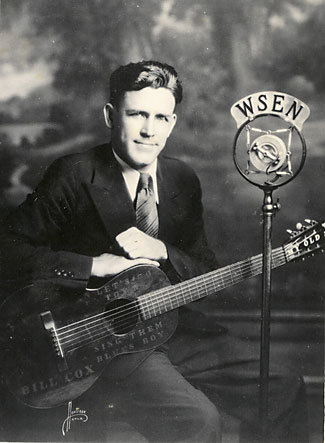James Francum Braswell (1908-1958) was born in 1908, the son of a farm family, in Piney, in Caldwell County, in western North Carolina. By 1920, however, his father and two siblings were working in cotton mill in nearby Lenoir, and although no definitive evidence has surfaced, Braswell himself may have worked in the mills, in either Caldwell or Gaston County. How Braswell and Wade met remains uncertain, nor is it clear how the duo came to audition for Columbia. However, in the fall of 1929, the pair traveled to Johnson City, Tennessee, to record at a field session, supervised by A & R man Frank B. Walker.
There, on October 21, 1929, in a makeshift studio set up in a former cream separator station, Wade and Braswell waxed two vocal duets for Columbia’s “
Familiar Tunes, Old and New” series:
Think a Little, a rather secular admonition to uphold the biblical Golden Rule, and
When We Go A Courtin’, a comical cautionary tale about the hazards of courting
(text taken from Gastonia Gallop's Artist Gallery).Braswell's harmonica playing is extremely powerful and creative, remarkably close to Gwen Foster's style, employing lots of blowbends and upper octave tongue trills in 1st position on a G. Unfortunately these two cuts appear to be his only known recordings. However he remains to be an important part in the legacy of great Carolina harp players.
Francum Braswell & George Wade - "Think a Little"Francum Braswell & George Wade - "When You Go A'Courtin"





